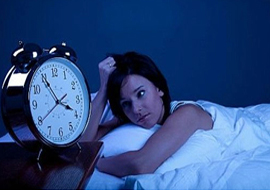Natural Supplements to Help You Sleep
 I hope you read my article on the importance of sleep and the top 20 ways to improve sleep quality. Well actually, that post only included 19, with the 20th the subject of this article. Of course the most important way to sleep better is with Paleo nutrition and chemical avoidance. If those 19 don’t lead to the sleep you need, try these supplements to zonk out.
I hope you read my article on the importance of sleep and the top 20 ways to improve sleep quality. Well actually, that post only included 19, with the 20th the subject of this article. Of course the most important way to sleep better is with Paleo nutrition and chemical avoidance. If those 19 don’t lead to the sleep you need, try these supplements to zonk out.
- Magnesium
Along with contributing to a good night’s sleep, this light, silvery metallic element is an oft-overlooked nutrient that helps maintain normal muscle and nerve function, keeps heart rhythm steady, supports a healthy immune system, and keeps bones strong. Lack of magnesium inhibits nerve cell communication, which leads to cell excitability. The result: a stressed and nervous person. Several older studies show that magnesium can improve sleep quality and reduce nocturnal awakenings. - Melatonin
A hormone that regulates the normal sleep/wake cycle, melatonin can be used in supplement form as an occasional sleep aid, and is especially effective against jet lag. According to research, the body naturally produces melatonin after the sun goes down, letting us know it’s time to fall asleep. Supplemental melatonin assists with this process. Cherries appear to boost melatonin. - L-theanine
An amino acid derivative found in green tea, theanine has long been known to trigger the release in the brain of gamma-aminobutyric acid, or GABA. GABA activates the major calming neurotransmitters, promoting relaxation and reducing anxiety, but the body has difficulty absorbing supplements containing synthesized GABA. That’s why experts recommend theanine, which the body can easily absorb and, ultimately, use to boost levels of GABA. Just make sure your green tea is decaf at night. - Valerian
Many experts recommended this herb to reduce the amount of time it takes to nod off. According to the NIH, no single compound in valerian has been identified as the active agent. However, the NIH reports that valerian seems to have sedative properties, and it may increase the amount of GABA. - 5-HTP
A compound derived from the amino acid L-tryptophan, 5-HTP acts as a precursor to serotonin, which is a neurotransmitter that is essential for a good night’s sleep. It is a better supplement than L-tryptophan because 5-HTP can cross the blood-brain barrier and thus increase serotonin in the brain. A small 2009 study of 18 people found that those who took a product combining 5-HTP and GABA needed less time to fall asleep, slept longer and reported improved sleep quality. - Lavender
Aroma therapy with a couple sprays of Lavender has many proponents. Several patients of mine are fans of this herb. - Chamomile tea
Most people find any herbal tea to be soothing at bedtime but chamomile is known to work very well. - Lemon Balm
In one study of people with minor sleep problems, 81% of those who took an herbal combination of valerian and lemon balm reported sleeping much better than those who took placebo. - Phenibut (β-Phenyl-γ-aminobutyric acid)
Phenibut is a derivative of the naturally occurring inhibitory neurotransmitter GABA that crosses the blood brain barrier. This is a prescription drug in Russia. It works but best under the guidance of a doctor. - B vitamins
Optimized B12 as methylcobalamin and folate as methylfolate. These two B vitamins are critical for neurotransmitter formation. Check with your doctor on dosing.
Pick and choose the right combination for you. I usually start off with one herbal and one supplement and see what works and what does not.
There is always a cause, but when you are not achieving sleep success, count grass fed sheep.
